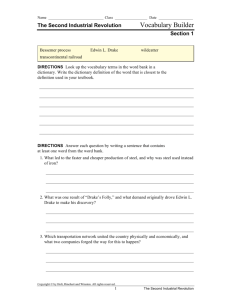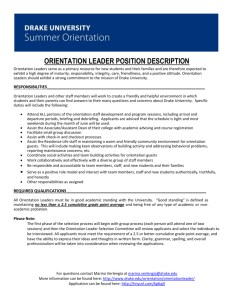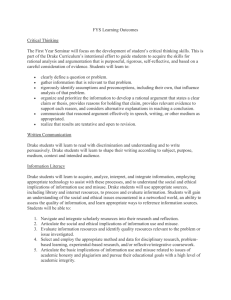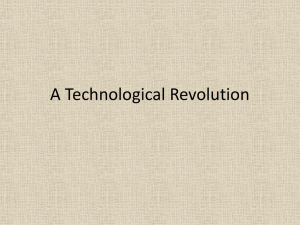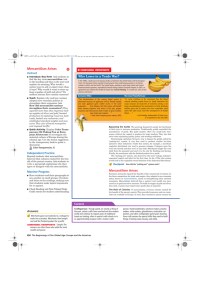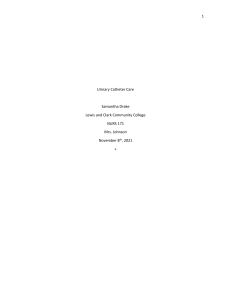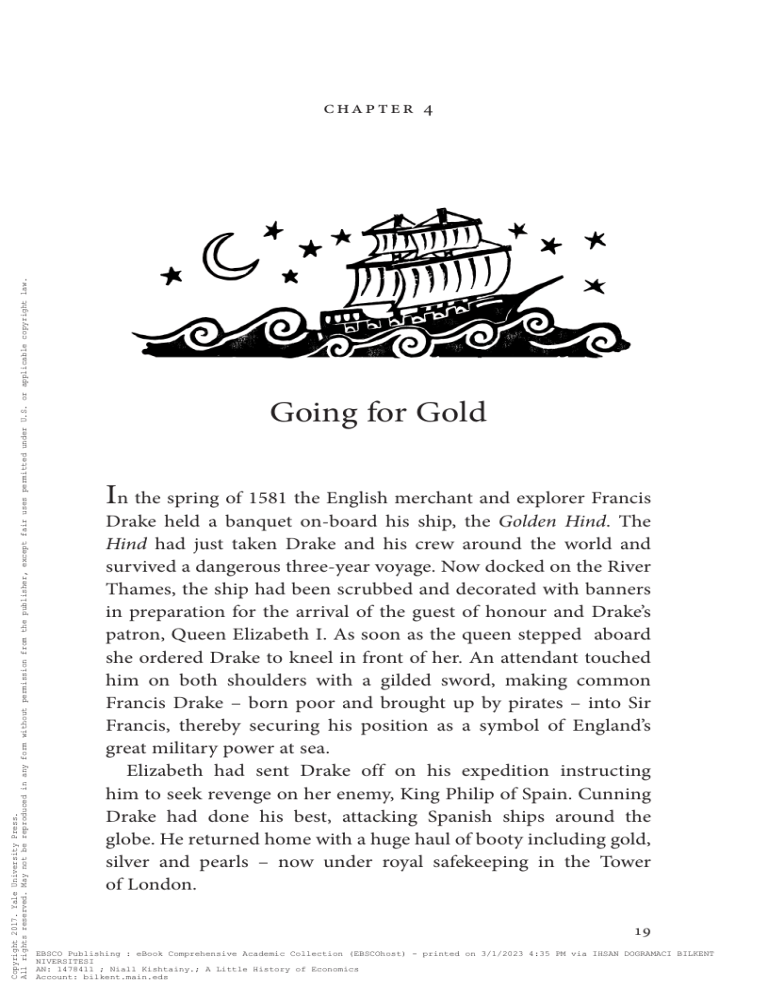
Copyright 2017. Yale University Press. All rights reserved. May not be reproduced in any form without permission from the publisher, except fair uses permitted under U.S. or applicable copyright law. c ha p t e r 4 Going for Gold In the spring of 1581 the English merchant and explorer Francis Drake held a banquet on-board his ship, the Golden Hind. The Hind had just taken Drake and his crew around the world and survived a dangerous three-year voyage. Now docked on the River Thames, the ship had been scrubbed and decorated with banners in preparation for the arrival of the guest of honour and Drake’s patron, Queen Elizabeth I. As soon as the queen stepped aboard she ordered Drake to kneel in front of her. An attendant touched him on both shoulders with a gilded sword, making common Francis Drake – born poor and brought up by pirates – into Sir Francis, thereby securing his position as a symbol of England’s great military power at sea. Elizabeth had sent Drake off on his expedition instructing him to seek revenge on her enemy, King Philip of Spain. Cunning Drake had done his best, attacking Spanish ships around the globe. He returned home with a huge haul of booty including gold, silver and pearls – now under royal safekeeping in the Tower of London. 19 EBSCO Publishing : eBook Comprehensive Academic Collection (EBSCOhost) - printed on 3/1/2023 4:35 PM via IHSAN DOGRAMACI BILKENT NIVERSITESI AN: 1478411 ; Niall Kishtainy.; A Little History of Economics Account: bilkent.main.eds 20 A L I T T L E H I S T O RY O F E C O N O M I C S At that time, the monarchs of Europe were creating modern nations out of the medieval patchwork of lands under the control of different princes and dukes. The nations competed with each other to be the strongest. Spain was Europe’s leading power and now the Dutch and the English were coming up behind. At that time, too, merchants like Drake were gaining power and influence like never before. Merchants helped to enrich their monarchs, and monarchs paid for the merchants’ voyages. Elizabeth’s knighting of Drake on the deck of his ship symbolises the alliance between the rulers and the merchants. The alliance came to be called ‘mercantilism’ (from the Latin word for merchant). It emerged when thinkers began to turn away from medieval religion towards reason and science. In earlier times, writers on economic questions had been monks who were rather removed from the hurly-burly of commerce, but now new economic thinkers appeared who were less interested in religion. They were practical people, often merchants or royal officials, who wrote about how kings and queens could best look after the wealth of their nations. One of them was a merchant named Gerard de Malynes (c.1586–1641) to whom Drake once sold pearls looted during a battle with the Spanish. The most famous was the Englishman Thomas Mun (1571–1641) who as a young man carried out trade around the Mediterranean. Once, near Corfu, he was captured by the Spanish and his colleagues feared that he was going to be burnt at the stake. Luckily they managed to get him released and Mun went on to become a wealthy, influential man. The mercantilists held a hodgepodge of beliefs rather than a fully developed economic theory. Economists nowadays often ridicule them for not understanding the most basic economic truths. For example, what do you actually mean when you say that a country is rich? A basic version of mercantilism says that wealth is gold and silver, so a rich country is one with a lot of it. Here the criticism is that the mercantilists commit the ‘Midas fallacy’. In Greek legend, the god Dionysus granted King Midas a wish. Midas asked that everything he touched would turn to gold; when he tried to eat, his food did exactly that, and hunger threatened. The EBSCOhost - printed on 3/1/2023 4:35 PM via IHSAN DOGRAMACI BILKENT NIVERSITESI. All use subject to https://www.ebsco.com/terms-of-use Going for Gold 21 story tells us that it’s foolish to see wealth in the glitter of gold rather than in loaves and meat. You could end up starving, or like Smaug, the dragon in J.R.R. Tolkien’s The Hobbit, dazzled into sitting on a pile of gold, doing nothing all day except counting coins and breathing fire at treasure hunters. Even so, for centuries explorers looked for gold and monarchs tried to build up their stocks of it. Europe’s original explorers, a century before Drake, were the Portuguese and Spanish, and one of them, Hernán Cortés, knew a thing or two about the attraction of gold when he said, ‘We Spaniards suffer a sickness of the heart that only gold can cure.’ They opened Europe’s gates to a golden flood from the late 1400s when their explorers sailed across the Atlantic and discovered the New World of the Americas. There they found ancient civilisations chock-full of gold and silver. The explorers attacked the cities, murdered their inhabitants and brought the treasure back to Spain. They ruled over the new lands to keep the gold flowing. Spain built up a mountain of treasure and became the mightiest nation in Europe. To the English, Spain became something like Smaug: a fierce hoarder of riches, with an apparently invincible skin but with weak points that could be attacked. Men like Drake made a living out of trying to pierce Spain’s hide. Eventually it turned into all-out war. Modern economists criticise the mercantilists for being obsessed with gold instead of the goods that we need to live. Today we measure how rich a nation is in terms of the amount of food, clothes and other goods that its businesses produce. We no longer pay for things using gold. Instead we use ‘paper money’: pound notes and dollar bills which in themselves are worthless. Our coins, too, are made out of cheap metals worth much less than the actual value of the coins. Notes and coins are valuable simply because we all agree that they are. But in the days of the mercantilists gold was the only way of buying things, and as commerce expanded more of the useful things that people needed, whether food, land or labour, had to be bought with it. Nowadays governments can create money by printing more of it; back then kings and queens had to find actual gold to pay for the armies and castles needed to defend their EBSCOhost - printed on 3/1/2023 4:35 PM via IHSAN DOGRAMACI BILKENT NIVERSITESI. All use subject to https://www.ebsco.com/terms-of-use 22 A L I T T L E H I S T O RY O F E C O N O M I C S borders. So in their love of gold the mercantilists weren’t as misguided as they’re sometimes made out to be. Economic ideas are to do with the circumstances that societies find themselves in, and long ago those circumstances were quite different from our own – something that’s easy to forget when we look back into the past. Malynes wrote a book entitled A Treatise of the Canker of England’s Common Wealth which followed the mercantilist line that the nation needed a healthy stock of gold. To Malynes, England’s economic disease (its ‘canker’) was too many purchases of foreign goods and too few sales of English goods to foreigners. People in England buy wine from winemakers in France using gold; they earn gold when they sell their wool to the French. When England buys many foreign goods and doesn’t sell many of its own goods to foreigners, the country’s stock of gold shrinks. Malynes’s cure was to put restrictions on the outflow of gold to preserve the nation’s stock. They were common policies at the time; some governments, like that of Spain, made the taking of gold and silver out of the country punishable by death. But in his most famous book, England’s Treasure by Forraign Trade, Mun said that the best way for England to get gold was not by restricting the flow of treasure or, indeed, by Drake’s method of stealing from foreign ships, but rather by selling to foreigners as many goods as possible. Countries do well at this when they get good at making things. The aim was to achieve a favourable ‘balance of trade’ in which the value of exports (goods going out) exceeded that of imports (goods coming in). From the sixteenth century, with sturdier, faster ships, the Spanish, Portuguese, English, Dutch and French competed for dominance in foreign trading to improve their balance of trade. Their crafts travelled back and forth along new routes, transporting sugar, cloth and gold across the Atlantic Ocean, and capturing millions of Africans to be sold as slaves to plantation owners in the Americas. Governments took steps, supported by the mercantilists, to encourage exports and to discourage imports. Imported goods were subject to taxes, making them more expensive, which made people buy more locally produced goods. There were ‘sumptuary’ laws, EBSCOhost - printed on 3/1/2023 4:35 PM via IHSAN DOGRAMACI BILKENT NIVERSITESI. All use subject to https://www.ebsco.com/terms-of-use Going for Gold 23 too, which banned expensive (sumptuous) products. In England, show-offs could be put in the stocks for wearing silks and satins; many of the illegal luxuries were foreign imports. As explorers and armies conquered new lands, rulers gave merchants the right to trade with the territories. Sea voyages were risky, so a single person wouldn’t want to finance them alone. Rulers allowed the merchants to set up special companies in which a group of investors each contributed money and each received a share of the profits. The companies led the push into the foreign lands, earning wealth and fame for themselves and their rulers. The English East India Company, founded in 1600, of which Mun was an official, was one of them. The company turned into a powerful organisation and helped England to establish an empire in India. By protecting them from imported goods and helping them to export their own goods, governments helped the merchants get rich. The mercantilist writers argued that what was good for the merchants was good for the nation. Here we see how economic ideas sometimes end up favouring certain groups in society. By restricting imports, mercantilism favoured businesspeople over workers. When imports are taxed, the country’s businesses make more money, but ordinary people end up paying more for the food and clothes that they need. This is another reason why later thinkers thought the mercantilists were wrong. In a few chapters we’ll meet Adam Smith, who is often considered to be the father of modern economics. He thought that the task of economists was to uncover objective laws about how the economy worked and he said that the mercantilists failed to do this because they mainly argued for their own interests. What was good for merchants wasn’t always good for the nation, said Smith. The mercantilists thought that imports were bad, though economists today think that’s nonsense. Back then, the view was that if England sells nails to the Dutch then England’s gain (payment for the nails) is Holland’s loss. But imports aren’t bad if what Dutch people want is English nails – or Russian caviar and French cheese. Often imports are essential to economic progress, for example if strong foreign nails are used to build the carriages needed to EBSCOhost - printed on 3/1/2023 4:35 PM via IHSAN DOGRAMACI BILKENT NIVERSITESI. All use subject to https://www.ebsco.com/terms-of-use 24 A L I T T L E H I S T O RY O F E C O N O M I C S transport food from the countryside to the towns. So if England sells nails to the Dutch then both England and Holland gain: England earns money and Holland obtains good cheap nails. Smith attacked mercantilism at the end of the eighteenth century. At the same time it suffered another blow when Britain’s American colonies broke away. Britain’s control of the colonies had given its merchants a guaranteed market in which to sell their goods, but this came to an end when the colonies rebelled against British rule and declared themselves independent. Thinkers like Mun straddled two ages. At one end was the medieval era in which economic life was local and shaped more by religion and personal ties than by money. At the other was the coming of an industrial age in which money ruled and economic life expanded across regions and the globe. The mercantilists linked the two. They were some of the first to emphasise concerns about resources and money over moral ones, the hallmark of much economic thought after them. They didn’t worry about whether the pursuit of wealth was allowed by biblical teaching. To them, money was the new god. As the men of commerce became more powerful, others mourned the passing of old ways of life in which what was valued wasn’t trading and making money, but chivalry: the honour and bravery of knights and kings. ‘The age of chivalry is gone,’ said the Irish statesman and writer Edmund Burke in 1790. ‘That of . . . economists and calculators has succeeded; and the glory of Europe is extinguished for ever.’ EBSCOhost - printed on 3/1/2023 4:35 PM via IHSAN DOGRAMACI BILKENT NIVERSITESI. All use subject to https://www.ebsco.com/terms-of-use
